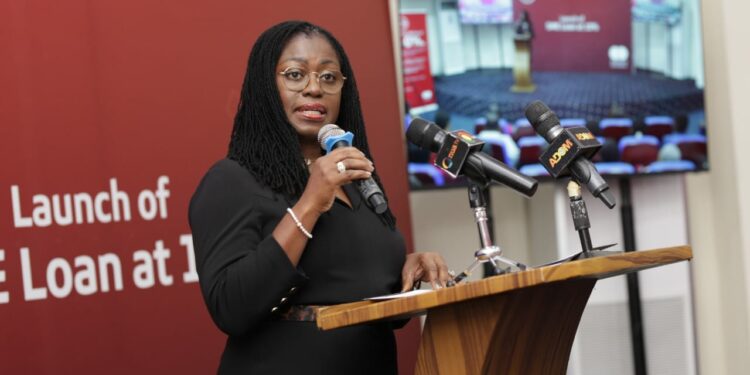Banking sector remains resilient and liquid despite recent challenges, says 2nd Dep. Governor
Speaking during the launch of the ABSA SME Loan at 10% proposition to SME businesses, Awadzi noted that the banking sector’s clean-up and recapitalization efforts before the onset of the pandemic provided the industry with the necessary capital and liquidity buffers to withstand the pandemic and recent macroeconomic challenges.
- Advertisement -
The Second Deputy Governor of the Bank of Ghana, Elsie Addo Awadzi, has reassured stakeholders of the banking sector’s continued solvency and liquidity, despite recent macroeconomic challenges and the ongoing government debt restructuring efforts.
Speaking during the launch of the ABSA SME Loan at 10% proposition to SME businesses, Awadzi noted that the banking sector’s clean-up and recapitalization efforts before the onset of the pandemic provided the industry with the necessary capital and liquidity buffers to withstand the pandemic and recent macroeconomic challenges.
- Advertisement -
This positive outlook is a testament to the central bank’s strong and decisive actions in recent years to strengthen the banking sector’s resilience and ensure the safety and soundness of the financial system. Through prudent regulation and supervision, the Bank of Ghana has created an environment that enables banks to operate effectively, efficiently and sustainably. However, Awadzi emphasized that the banking sector must not become complacent and should take steps to rebuild strong buffers to ensure its long-term resilience.
- Advertisement -
The launch of the ABSA SME Loan at 10% proposition is one such step towards building a more inclusive financial system that supports the growth of Ghana’s SME sector. The initiative aims to provide affordable and accessible finance to SMEs, which form a critical part of the Ghanaian economy.
While supervising and regulating banks to promote their safety and soundness, the Bank of Ghana expects banks to be more inclusive in their product and service offerings, ensuring that all economic actors in Ghana can access much-needed finance to grow their businesses and contribute to the growth of the economy.
- Advertisement -
Awadzi further called on commercial banks to reduce lending rates as the country’s macroeconomic indicators, such as inflation, continue to improve. Awadzi noted that inflation has consistently dropped since the beginning of the year to 41.2%, indicating a positive trend in the economy.
She encouraged banks to deploy the funding available to them into more lending to the private sector, especially to SMEs, within the framework of robust credit underwriting and risk management. With a more liquid banking sector, Awadzi expressed the hope that lending rates would come down as the economy picks up and the inflation rate continues to drop.
According to her, the Bank of Ghana remains committed to promoting a stable, safe, and sound banking sector that supports the growth of the economy. Through initiatives such as the ABSA SME Loan at 10% proposition, and encouraging commercial banks to lend more to the private sector, the central bank is taking proactive steps towards building a more inclusive and resilient financial system that benefits all economic actors in Ghana.
Source: norvanreports
- Advertisement -


